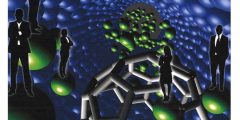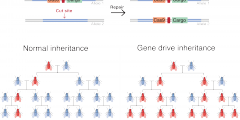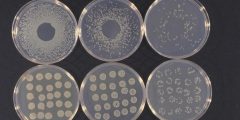When the world falls apart, enjoy a metaphor!
February 11, 2025
I have been writing blog posts since 2012. They dealt mainly with topics relating to climate change, the biosciences, infectious diseases, and more recently AI. Occasionally, I branched out into space or into the 19th century. That happened at times when the tectonic plates of politics shifted, such as after Brexit, the first Trump government, …
Organoid Intelligence
October 25, 2024
I have written about organoids and intelligence, especially of the artificial kind. However, I haven’t explored ‘organoid intelligence‘ until now. Despite this concept emerging around 2022, it escaped my attention. So, I have some catching up to do. In this post, I’ll first briefly define organoids and organoid intelligence. Then I’ll examine the pioneers who …
Artificial Intelligence: Education and entertainment
January 6, 2023
I have heard about artificial intelligence or AI for decades, but I have never really played with it. I guess this is the same for many people. We might have AI all around us, but at the end of 2022 it became much more tangible – we had it at our fingertips. A company called …
Synthetic biology, engineering biology and responsible innovation
October 16, 2020
Between about 2014 and 2018 I have been involved in the social and communications side of ‘synthetic biology’. I was especially interested in synthetic biology with relation to ‘responsible innovation’ or ‘responsible research and innovation’ or RRI (here are some blog posts). Since then other issues have pre-occupied my mind and I lost a bit …
The Missing Ingredient: Capacity Building’s Role in Developing Responsible Innovation Systems
July 3, 2020
This is a guest post by Patrick Backhouse who is an undergraduate student at the University of Exeter Business School. Patrick has been studying responsible innovation as part of a module led by Dr Katie Ledingham. This blog post is based on an essay that he wrote for this module. *** Responsible Innovation (RI) is …
Is STS trivial? Chris Toumey reflects on writing a book about nanotech and the humanities
February 15, 2019
This is a guest post by Chris Toumey, a cultural anthropologist who has observed and studied developments in nanotechnology for many years. Chris and I have known each other for a long time, and his work and words have always inspired me. He has just published a book entitled Nanotech and the Humanities: An Anthropologist …
Gene drive communication: Obstacles and opportunities
January 18, 2019
The other day I was talking to two people about various developments in science. Both are interested in science, but they are not natural scientists. I mentioned ‘gene drives’. Their faces went blank. I then said: “it’s something like the gene editing of a whole population of creatures, such as insects, for example. This can …
Minimal biology
November 3, 2018
This morning (3rd November) I saw a tweet by @BrisSynBio announcing “Max Planck-Bristol Centre for Minimal Biology announced @BristolUni & @maxplanckpress partner to pursue game-changing research in the emerging field of #minimalbiology to address some of the most complex challenges in fundamental science”. I became curious and read the whole announcement, balking a bit at the pressreleasish …










